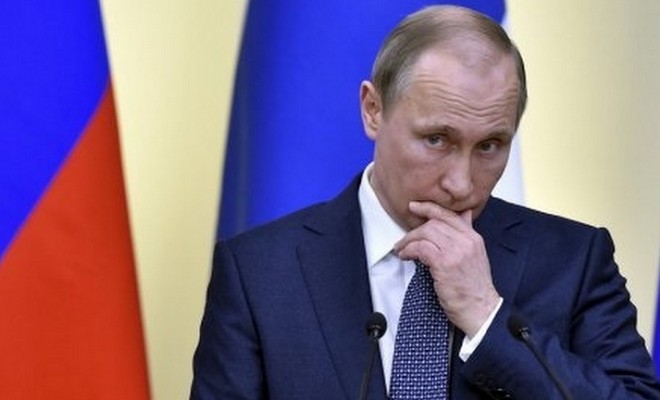
The Russian hacking intelligence report: Strong assertions, weak public evidence
The public version of the report to the president on Russian hacking by the 17 combined US intelligence agencies is emphatic and blunt in its conclusions — but disturbingly silent on the evidence behind its bold assertions. Supposedly, the classified version of the report contains more probative details. But given the huge implications of alleged Russian interference at the very core of the US presidential elections process — and the open skepticism of the intelligence community by President-elect Donald Trump — the view here is that the Obama administration erred in not forcing the intelligence agencies to reveal at least some of methods and forensic capabilities that underpin the report’s declarations.
As Susan Hennessey, a former NSA attorney, characterized the report: “This isn’t a remotely risk-embracing document.” And she further explained why: “There’s always a tension between those who think it’s worth bringing forward sources and methods and those that don’t. It’s clear that those with very conservative views about protecting sources prevailed….The unclassified report is underwhelming at best.”
So what is it about the report that demands greater public validation? First, there is the unequivocal declaration that, “We assess that President Vladimir Putin ordered an influence campaign in 2016 aimed at the US presidential election. Russia’s goals were to undermine public faith in the US democratic process, denigrate Secretary Clinton, and harm her electability and potential presidency. We further assess Putin and the Russian Government develop a clear preference for President-elect Trump.” (CIA, NSA and FBI all had “high confidence” in this conclusion.)
More generally, the report stated, “Russian efforts to influence the 2016 presidential election represent the most recent expression of Moscow’s long-standing desire to undermine the US-led liberal democratic order, but these activities demonstrated a significant escalation in directness, level of activity, and scope of effort compared to previous operations.”
Unfortunately, the bulk of the document does not provide backup for the direct assertion that President Putin personally ordered the subversion of the US presidential election. Rather, much of the report presents a broader analysis of Russia’s long-standing “multifaceted” espionage against US institutions: its world-class propaganda efforts, including the activities of RT, its principal propaganda outlet, and its sophisticated campaign of disinformation and political subversion in the political processes and nations around the world. All of this is fascinating but largely beside the point for this report. It seems to be filler, aimed to divert attention from the paucity of public evidence relating to the real issue at hand — establishing a credible body of evidence to support the bold and grave charges at the outset of the document.
The present writer (hopefully) is not naïve or unschooled on the difficult tradeoffs posed to the intelligence community when deciding just how much to reveal about the sources and data they must reveal in constructing a credible case. But in this instance, there are compelling reasons to push beyond the normal confines of disclosure.
First, there is the gravity of the charges — this is the first time the US (or any other nation so far as I know) has directly accused the head of state of another nation of attempting to interfere — and even subvert — the outcome of a national election. There are as yet no international norms regarding cyberattacks or what constitutes actual cyberwarfare. The Obama administration’s particular set of retaliatory measures begins to set a precedent — but they are by no means the final word. Congress seems intent on exploring the Russian hacking incident in much greater detail, and there is growing pressure for even stronger measures against Putin and his top associates. (On Tuesday, Sens. John McCain (R-AZ) and Lindsay Graham (R-SC) introduced legislation levying much stronger sanctions on Russia’s defense and intelligence sectors.) No matter how this plays out, the US will be in a much better position to defend its actions if it can produce deeper evidence for its charges.
Second, the administration has already indirectly exposed some of the underlying espionage though leaks, leaving it in the position of defending its evidence in a twilight zone. For instance, apparently an intelligence source let it be known to Reuters that the agencies had identified the Russian official who was the actual go-between in releasing the damaging Democratic National Committee (DNC) information to Wikileaks. And — to Donald Trump’s fury — before he formally received the report, an administration (intelligence?) official leaked to NBC the fact that in the immediate post-election period Russian officials had been detected celebrating Trump’s victory as a victory for the Kremlin. As noted above, Congress is already demanding more details on the background evidence; and it will certainly follow up on these particular leaks. Bottom line — it would be far better for the intelligence agencies to present more detailed evidence on their own, rather than having the damning material be dragged out, piece by piece.
As matters stand now, they will get little help from President-elect Trump. After his briefing on Friday, the incoming president did find the meeting “instructive,” but he ignored its key findings and once again flew off on a political tangent, tweeting, “Only reason the hacking of the poorly defended DNC is discussed is that the loss by the Dems was so big that they are totally embarrassed.” Meanwhile, the Russians continued over the past weekend to deride the report, labelling it an “amateur” effort unworthy of the “highly professional work of truly top-notch security services.”
Clearly it’s time for Congress to salvage something of US credibility with a thorough airing of the facts behind this whole sad episode — including insistence on a fuller accounting of the technical analysis behind the decision to personally finger and indict Vladimir Putin for “ordering” the campaign against the American democratic process.
Πηγή: TechPolicyDaily.com




